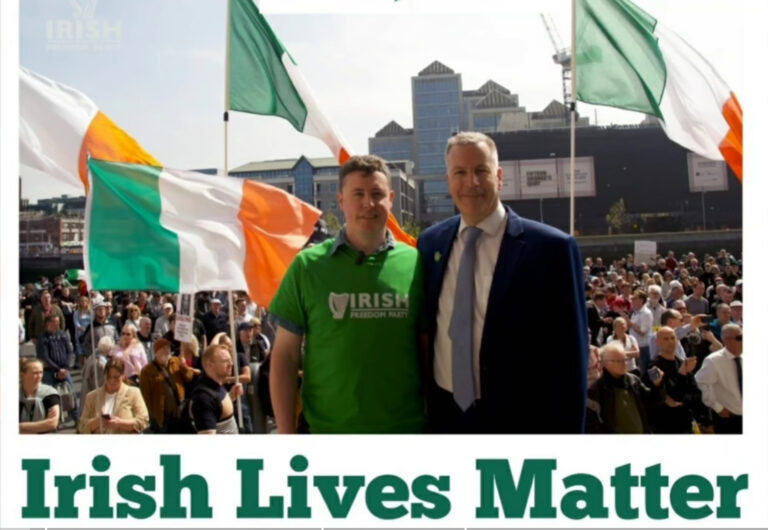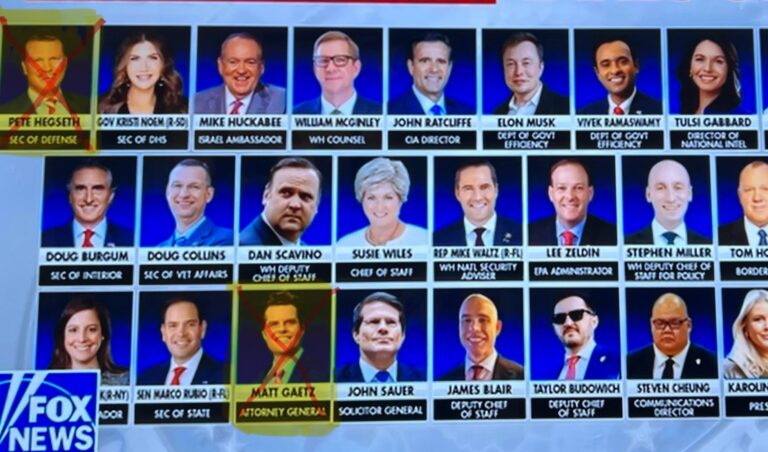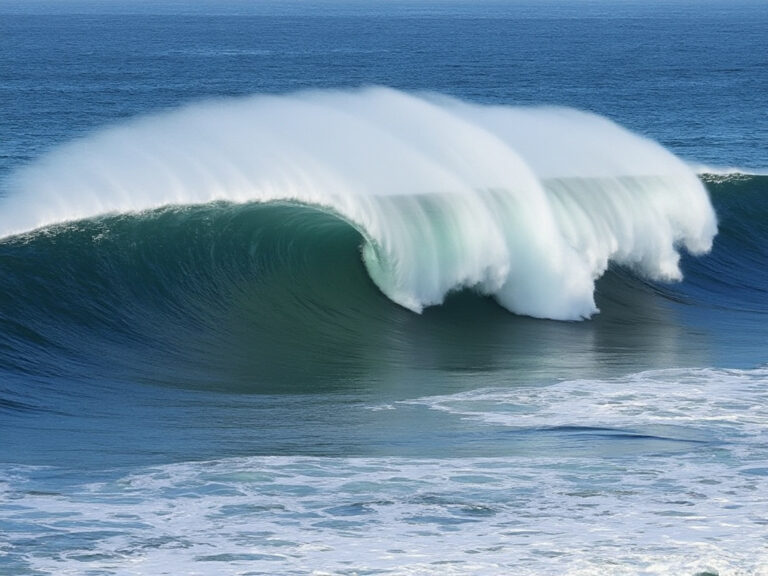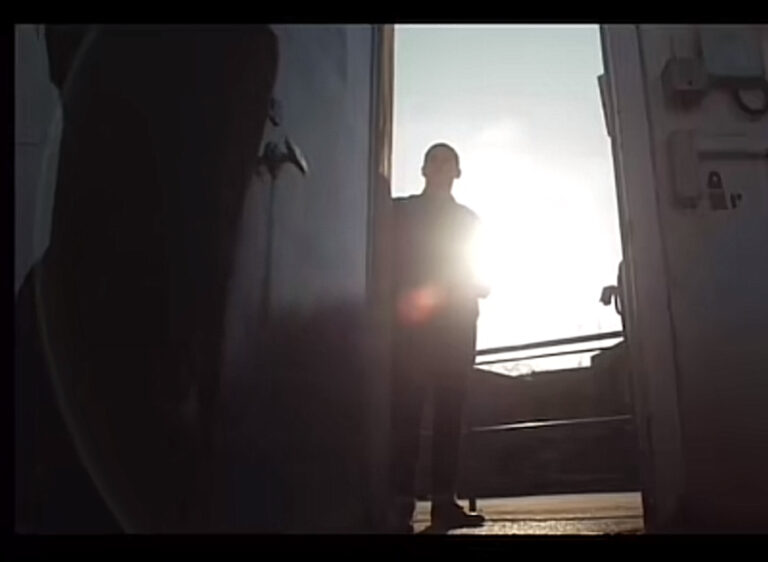
The Irish Freedom Party (IFP) and the Trump administration share some ideological similarities that reflect broader global trends in populist, right-leaning, and nationalist politics. While the two differ in context and political landscape—Ireland’s history, culture, and geopolitical position contrast with those of the United States—both are rooted in the principles of sovereignty, national identity, immigration control, and skepticism of supranational organizations.
Saddle up and strap in, because we will explore how the Irish Freedom Party, with its nationalist agenda, resonates with themes associated with the Trump administration, drawing parallels in political style, policy priorities, and responses to contemporary issues such as globalism, immigration, and cultural identity. By examining the messaging and policy goals of both, we gain insight into the IFP’s emergence in Ireland as a counterpoint to the perceived dominance of establishment and liberal ideologies.
Foundations of Nationalism and Sovereignty
A core tenet of both the Irish Freedom Party and the Trump administration is a strong emphasis on nationalism and sovereignty. For the Trump administration, this meant pursuing an “America First” agenda focused on prioritizing American jobs, values, and resources over those of other countries. The Irish Freedom Party similarly upholds an “Ireland First” stance, advocating for the independence of Ireland from what it views as undue influence from external entities, particularly the European Union (EU).
For Trump, national sovereignty was essential to reasserting the United States’ role in a world dominated by globalist trade and foreign policy agendas. His administration pulled out of several international agreements, most notably the Paris Climate Agreement, the Trans-Pacific Partnership, and the Iran nuclear deal, arguing that these treaties did not benefit American citizens. The IFP’s approach echoes these sentiments by challenging Ireland’s EU membership, arguing that the EU impinges upon Ireland’s right to self-determination and autonomy in policymaking. Similar to Trump’s criticisms of “unelected bureaucrats” influencing American policy, the IFP positions the EU’s bureaucracy as a threat to Ireland’s democratic governance.
Immigration Control and Cultural Identity
Immigration control was perhaps one of the most contentious issues of the Trump presidency. Trump’s policies, including the travel ban, immigration restrictions, and enhanced border security, aimed to tighten the U.S. borders and limit entry, particularly from countries associated with high levels of illegal immigration. The rationale behind these policies was framed as both an economic and cultural necessity, with Trump asserting that unchecked immigration could dilute American culture, strain resources, and reduce job opportunities for citizens.
The Irish Freedom Party shares this skepticism towards high levels of immigration, emphasizing the preservation of Irish culture and national identity. The party argues that unrestricted immigration could transform the socio-cultural fabric of Ireland, affecting everything from language to community cohesion. Like Trump’s base, which often saw immigration as a threat to traditional American values, the IFP’s supporters worry that Ireland’s distinct identity may erode if immigration policies remain liberal. Party leaders have called for stricter immigration policies, arguing that Ireland must control its borders to maintain its unique identity and protect its resources for its citizens.
Populism and Anti-Establishment Rhetoric
Both Trump and the IFP have embraced a populist approach that positions them as champions of the “ordinary people” against the “elites.” Trump’s campaign and subsequent presidency were marked by anti-establishment rhetoric, targeting what he called the “swamp” in Washington, D.C.—career politicians, lobbyists, and influential media figures whom he accused of being out of touch with the average American. This narrative resonated with many working-class voters who felt neglected by mainstream political discourse.
Similarly, the Irish Freedom Party appeals to a sense of disenfranchisement among Irish citizens who feel that the traditional political establishment no longer represents their interests. The IFP positions itself as a voice for those who believe that mainstream Irish parties, such as Fianna Fáil and Fine Gael, have become detached from the concerns of the average Irish citizen. This sentiment is amplified by the party’s criticism of what it sees as the “liberal elite” in Dublin, whom they accuse of prioritizing EU interests and multiculturalism over Irish sovereignty and traditional values.
The populist approach of both Trump and the IFP can be seen in their use of direct, often provocative language to connect with their base. Both appeal to emotion and patriotism, encouraging supporters to reclaim their countries from influences they view as harmful. Trump’s rallies and the IFP’s speeches both convey a sense of urgency and a call to action, urging citizens to resist what they frame as overreach by elites and globalists.
Skepticism of Supranational Organizations
A defining characteristic of both the Trump administration and the Irish Freedom Party is their skepticism of supranational organizations, particularly the European Union for the IFP and institutions like the United Nations for Trump. Trump frequently criticized the United Nations, NATO, and other international alliances, suggesting that these organizations often served to bind American policy or drain American resources without adequately benefiting the U.S. He argued that America should not be beholden to international expectations that could potentially compromise national interests.
The Irish Freedom Party similarly views the European Union as an entity that infringes upon Irish sovereignty. IFP leaders argue that EU laws and regulations limit Ireland’s ability to govern itself independently, imposing policies that may not align with Irish interests. Like Trump, who questioned the necessity of American contributions to NATO and other alliances, the IFP is critical of Ireland’s financial contributions to the EU and the perceived lack of tangible benefits in return.
Economic Nationalism
Economic nationalism was a hallmark of Trump’s platform. By implementing tariffs, renegotiating trade deals, and promoting American manufacturing, Trump sought to reduce dependence on foreign goods and create jobs within the U.S. His administration’s policies were designed to protect American workers from what he described as unfair competition, particularly from China and Mexico. This economic strategy resonated with voters in industrial regions hit hard by globalization, where job losses were linked to the offshoring of American industries.
The Irish Freedom Party advocates a similar form of economic nationalism, albeit within the specific context of Ireland’s economy. The IFP opposes certain EU trade policies, particularly those that involve sharing markets with countries that may have competitive advantages over Ireland’s industries. They argue for more protectionist policies that would prioritize Irish farmers, businesses, and workers over multinational corporations or foreign competitors. While the economic conditions differ significantly between Ireland and the U.S., the IFP’s stance on protecting national industry aligns with Trump’s approach to shielding American businesses from international competition.
Media Relations and Perceived Bias
Both the Trump administration and the Irish Freedom Party have been vocal critics of the media, often alleging that mainstream media outlets are biased against them. Trump’s contentious relationship with the press was well-documented; he frequently labeled critical coverage as “fake news” and accused major news networks of working against him. This combative stance rallied his base, who often shared his belief that the media misrepresented his policies and motives.
The IFP has similarly accused Irish mainstream media of unfair coverage, suggesting that journalists often portray the party in a negative light or ignore their viewpoints altogether. This perceived media bias reinforces the party’s anti-establishment image, as supporters view mainstream media as part of an elite establishment that resists the IFP’s platform. Like Trump, the IFP has turned to alternative media outlets and social media to bypass traditional news channels, reaching supporters directly through platforms like Twitter and Facebook.
Cultural Conservatism and Traditional Values
Trump’s platform was rooted in cultural conservatism, promoting traditional American values, religious freedom, and what he described as “family values.” His administration took a strong stance on issues like abortion, gun rights, and school choice, aligning with the values of many conservative Americans. Trump’s focus on these issues was part of a broader cultural narrative that sought to preserve traditional American identity in the face of what his base perceived as progressive or “woke” ideology.
The Irish Freedom Party shares a similar cultural conservatism, advocating for policies that they believe will preserve Ireland’s cultural heritage. The party has voiced opposition to certain progressive policies, such as liberal abortion laws and the influence of what they see as secularism in Irish society. The IFP’s stance on cultural issues reflects its desire to protect Ireland’s traditional identity, including its Catholic heritage and rural community values. This alignment with conservative cultural principles is a point of convergence between the IFP and the Trump administration, as both seek to counterbalance the influence of progressive agendas.
Environmental Policy Skepticism
Trump’s approach to environmental policy was marked by a rollback of environmental regulations and a withdrawal from the Paris Climate Agreement, arguing that stringent environmental policies were detrimental to American industries and jobs. His administration promoted energy independence, particularly through fossil fuels, often sidelining renewable energy initiatives.
The Irish Freedom Party has expressed similar skepticism toward environmental policies that it believes could hinder economic growth or burden citizens with increased costs. While climate change is a concern in Ireland, the IFP is critical of what it views as overzealous environmental regulations imposed by the EU. The party argues that environmental policies should not compromise Ireland’s economic well-being, particularly for farmers and small businesses. Like Trump, the IFP calls for a balanced approach to environmental issues, one that does not place undue strain on the economy.
Grassroots Mobilization and Social Media Strategy
Trump’s use of social media to communicate directly with supporters was revolutionary, bypassing traditional media channels and allowing him to connect with his base in real-time. His Twitter feed became a critical tool for rallying his followers and shaping public opinion, giving his administration a powerful means of grassroots mobilization.
The Irish Freedom Party has similarly adopted social media as a key communication strategy. Through Facebook, Twitter, and alternative media platforms, the IFP reaches out to supporters directly, spreading its message without relying on traditional media outlets. This approach allows the party to build a grassroots following, energizing supporters who feel marginalized by the mainstream media. The IFP’s digital strategy is emblematic of the populist approach that Trump pioneered, enabling direct






